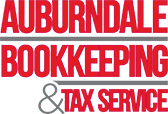Reporting Form 1099-K on Your Taxes
IRS Enrolled Agent
Member of the NATP
Over 35 Years of Experience
Understanding Form 1099-K and Who Receives Them
Another delay! While the IRS continues to determine the best way to enforce the new threshold for Form 1099-K, they have announced that tax year 2023 will remain at the $20,000 minimum for mandated reporting. Read on for a preview of what is to come for tax year 2024.
Under the American Rescue Plan Act, third-party transaction networks, such as PayPal, CashApp, and Venmo, are now required to send Form 1099-K to any user that received $600 or more in the calendar year. This also includes online marketplaces, such as Etsy and eBay.
Unfortunately, individuals that use these services to split household bills or receive reimbursements for picking up the check at dinner are caught in the crossfire. So will this money now be taxable? NO! But it is important to keep detailed records of what each transaction was for so you can prove it was a non-taxable event, such as:
- Sending a gift to family, friends, or loved ones;
- Splitting rent or other household bills; or
- Getting reimbursed for covering a night out.
The easiest way to do so is utilize the memo feature of your third-party transaction network and write exactly what the payment was for.
So What is Taxed on Form 1099-K?
The only payments received that will be considered taxable income are those received for goods or services rendered. If you monetized your hobby or run a business, some or all of the amount reported on Form 1099-K should be reported as appropriate based on your tax situation.
If you are unsure of the tax implications of Form 1099-K and have questions, call
(863) 965-1161 for more information and to schedule an appointment for your tax filing!


Share On: